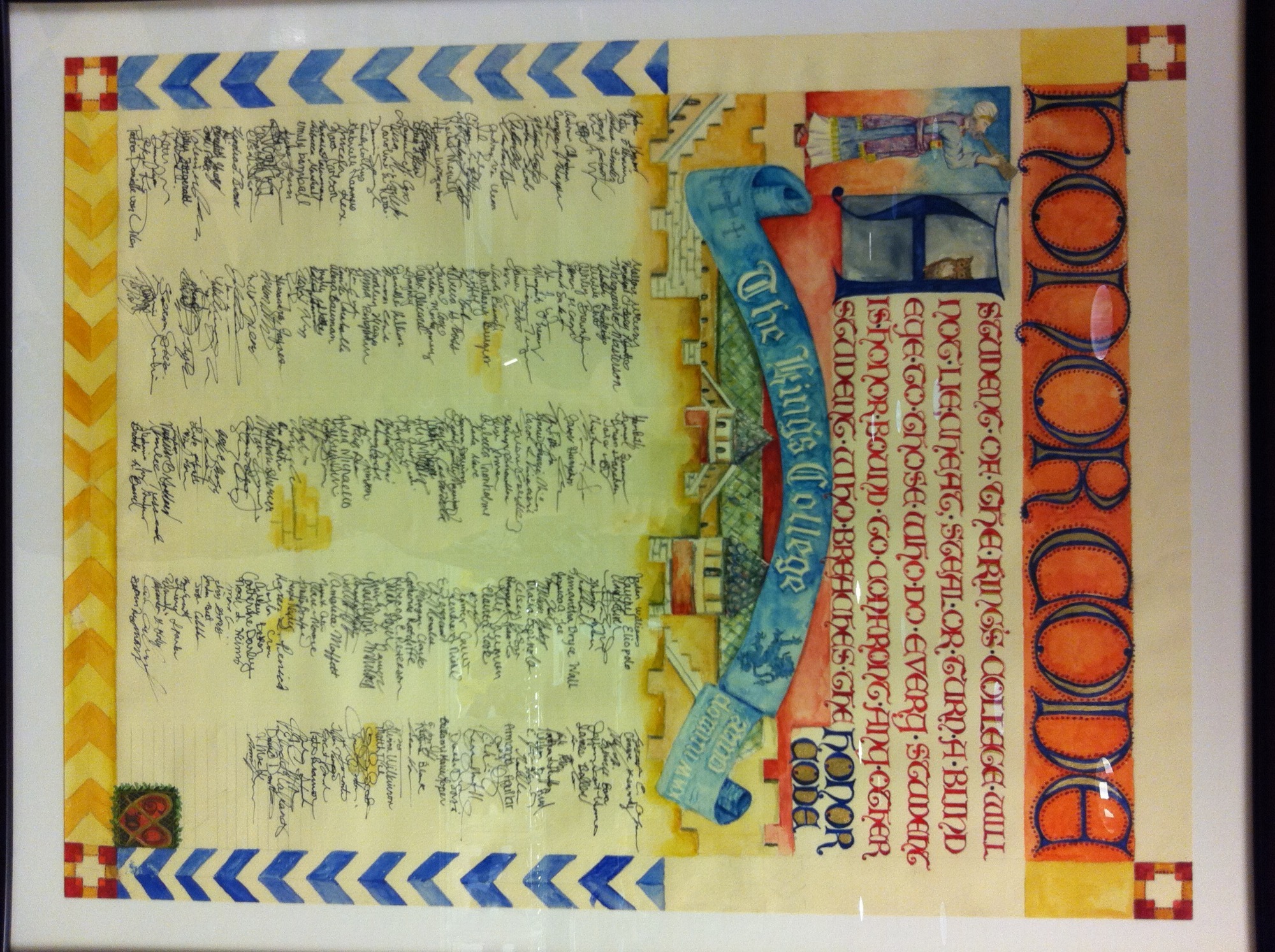Honor System More Student-Run Than Ever
 Students to outnumber faculty/staff on Honor Council, more in-House honor discussion
Students to outnumber faculty/staff on Honor Council, more in-House honor discussion
For the first time, students will outnumber faculty and staff on the Honor Council, a committee that resolves honor infractions at the highest level. Student Development has also integrated more explanation of the honor system into students’ first week at King’s, including in-House discussions of honor.
Student Development hopes the changes will inspire students to live honorably - what Dean of Students David Leedy describes as a “higher calling” than not lying, cheating or stealing.
Four students, one faculty member and one staff member will sit on the Honor Council. For the past eight years, only two students (selected by Student Development) have served on the council at each hearing with four faculty and staff members.
Now students, not staff, will elect representatives from their House (if they have not already.) Staff and faculty will soon vote two members each to the Honor Council. Out of the pool of ten students and four staff and faculty members, six at a time sit for hearings.
Churchill elected their chamberlain, Jonathan Sheaffer, to the position.
“With more students on the council, instead of the intimidation of authority … I think people will be more comfortable being honest,” Sheaffer said.
Each House representative is expected to sit on the council about six times during the year.
To prompt new students to think about honor early, Dean Leedy sent a preview of the honor system to new students over the summer. The students were asked to return the document by August 5th, signing that they understand they are “expected to abide by the Honor Code and by standards specified in the Student Handbook” and that they will hold their peers accountable to the same standard.
“Students haven’t had time to think through the implications on the first day of NSO [New Student Orientation],” Dean Leedy said. “This gives them a chance to think about what they’ll be signing.”
But like following the Honor Code, there is no guarantee that students will seriously consider the implications of living honorably.
“It just seemed like something else the school sends in the mail,” freshman Aimee Pham said.
Student feedback concerning the honor system prompted Student Development to make this year’s changes. Leedy hopes to inspire students to “grapple with what it means to live honorably” by letting influential students, like House exec. team members, take the lead.
“If honor is going to work at King’s, it has to work at the House level first,” Leedy said.
Once Pham arrived on campus, she realized the importance of the Honor Code. “You hear your advisor and the other students talking about it, and then it seems more serious.”
Last semester, Dean Leedy and the rest of Student Development visited Davidson College, a secular private school in Charlotte, North Carolina, to scout their honor system. Davidson relies exclusively on its students to promote academic honesty and prevent theft. And they are quite successful – students post classifieds for peers to claim lost iPods and even cash.
Davidson’s Honor Council structure particularly impressed Student Development. Thirty students, elected by the student body, make up the council. Ten sit on the council for each hearing. No staff or faculty members sit on the council.
King’s, however, allows one staff and one faculty member on the Honor Council because Student Development values “having staff and faculty involved in hearing and speaking to issues in our community,” Leedy said.
The main difference in the two honor systems is that honor at King’s implies a higher moral calling. Not lying, cheating, or stealing is “the bare minimum, the minimal standard,” Leedy said. He compares honor to a tree trunk and state law, the Honor Code and the Student Handbook to tree branches – three parts to a bigger whole.
At the Honor Ceremony last Wednesday night, Dean Leedy, Dr. Jackson, and Student Body President Madison Peace all spoke of the higher standard that honor calls the community to.
“The Honor Code does not call us to popularity or likability,” Peace said. “It calls us to accountability.”
More information about the honor system can be found in the Student Handbook.
http://www.tkc.edu/students/resources/pdf/studenthandbook.pdf

